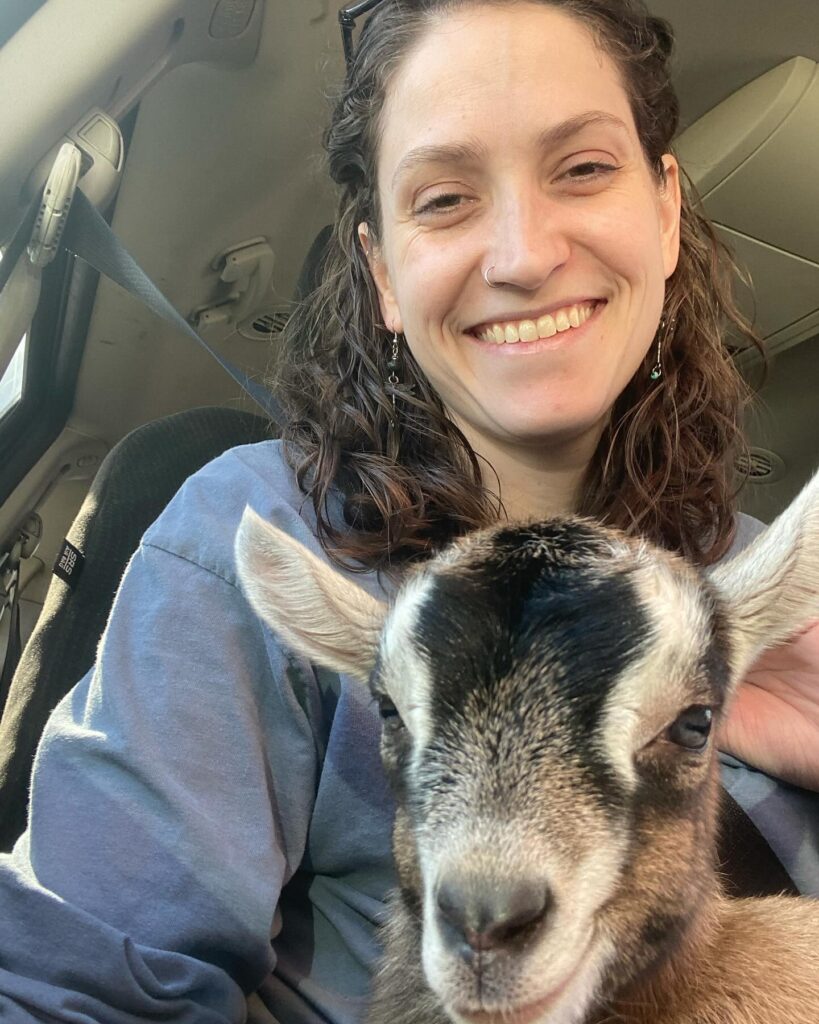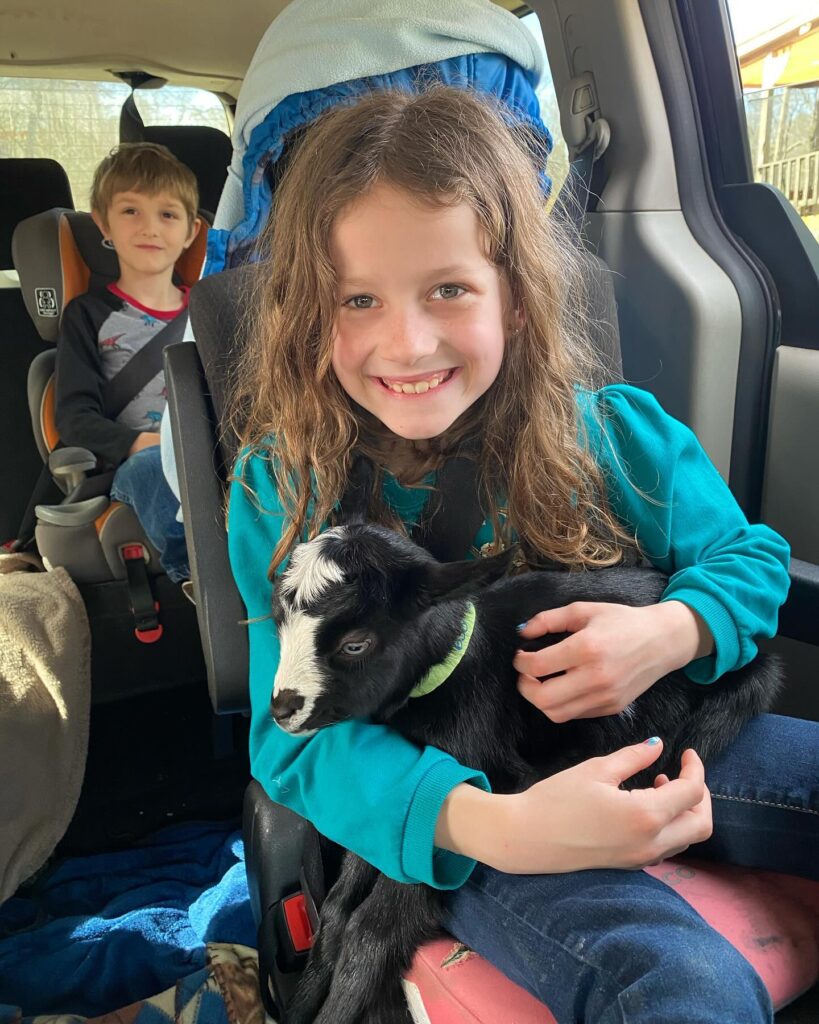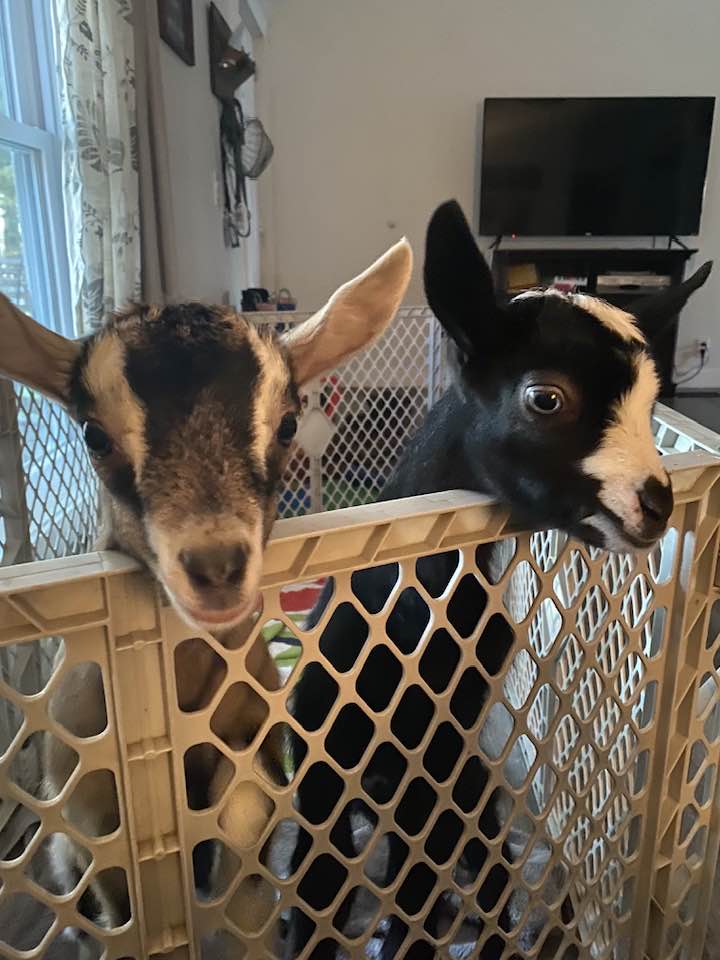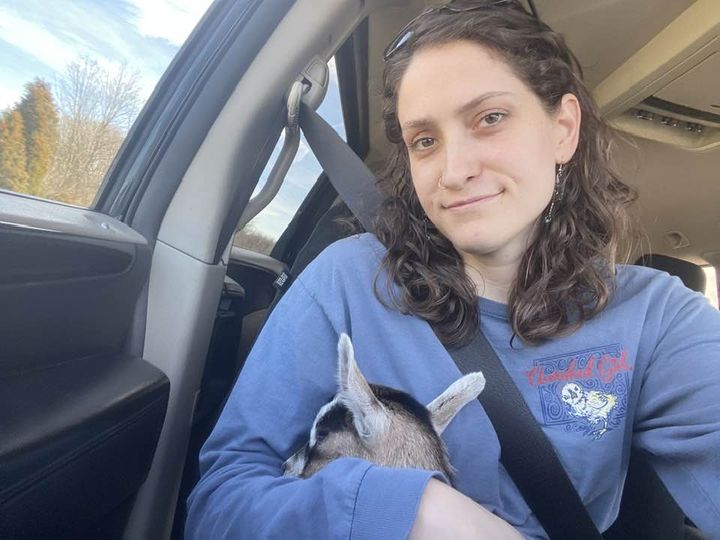Disclaimer this blog contains affiliate links that can provide our family a small commission.
Everybody loves animals in their baby stage especially baby goats!! The little baa cries and the way they hop around all over the place! They just bring smiles to your face!
This time last year, we welcomed 3 bottle baby goats into our home, and then we experienced an unfortunate accident when they were a little bit older, and we lost them. It was an indescribable experience. God/Yahweh moved in the most beautiful ways and helped us deal and get past the situation. It’s been a blessing to have babies in our home once again.
Our goats are alpine dairy goats. We plan to breed them so that they will eventually provide dairy and dairy products for our homestead. We drove down to Bardstown, KY to a little Grade A dairy farm owned by a lovely veterinarian and her husband. They have alpine kids available every spring.


Is your baby goat mom raised or a bottle baby?
It’s important to know if your goat will be raised by its mother or if it’ll be a bottle baby. What this means is that you’ll allow the mother to nurse and raise the baby on her own. Where a bottle baby is raised typically by a human. Bottle baby goats are more attached to humans because they associate them with food. People can take babies away from their mother as soon as it’s born and bottle feed it, but it’s recommended that if at all possible you allow the mother to raise the baby. You always want to try and ensure that the baby is able to get colostrum from its mother. Colostrum is also known as ‘first milk’. It’s the milk that is produced the first few days after birth. Colostrum provides a high source of nutrients and immunity for the newborn goat.
Our goats have been bottle baby goats. They have typically had a bottle or two before we get them. However, this time around the little black goat (Wilina) hadn’t. It can sometimes take a several tries for a baby goat to take a bottle.
Things you want to keep on hand when bringing a bottle baby goat home.
- Bottle
- Lamb/Kid Nipple
- Goat Milk Replacement
We typically get a few gallons of goat milk with our goats. Then transfer them to whole cow’s milk. - Colostrum Replacement (If your baby didn’t drink from mom for at least a few days.) Our goats come from a vet, and she does her best to make sure they have several days of colostrum before rehoming them.
- Feeding Tube Kit
Might be something you want to keep on hand, just in case you need it. We had a goat baby, Maranatha out of our last little group that needed a tube feeding.
Goats NEED Friends!
Goats are what’s called herd animals. Goats are very social creatures and often bond with other goats in their herd. They need to be with other animals of their kind. You can’t just get one and think it’ll be okay. When getting goats you want to consider how many you want in your herd.
Ruth & Wilina

How to House Your Goats
Most people keep their goats in a barn and create makeshift stalls from pallets and fencing. Depending on your goat breed, their size may vary. Alpine goats are a larger breed. We tend to keep our goats in the house for a week or so to love on and keep a close eye on them. Bottle baby goats require around the clock feeding.
We use puppy pads and a kid’s play yard to keep them contained. They’re usually snuggled up with us or running around the house with our kids! Once they are a week or two old they get moved out to the garage. We do the same set up, we just swap out the puppy pads for straw.
Goats can be a very serious homestead animal to get. They tend to be escape artists. Goats can get heavy worm loads and mineral deficiencies. It’s important to stay on top of their worming schedule and provide a wide arrangement of minerals. Most individuals suggest getting livestock guardian dog(s) to keep an eye on them 24/7. It’s always important to have a vet on speed dial and if possible, find a goat mentor who has raised goats for a while. We’re blessed to have several goat mentors in our inner circle.
As hard as last year was with our losses, we choose forgiveness with caution vs anger and bitterness. We’re grateful and excited for these new girls. They’ve brought such joy and love to our hearts and homestead.

“Clap your hands, all you peoples! Shout to God with cries of joy!” – Psalms 47:1

Leave a Reply